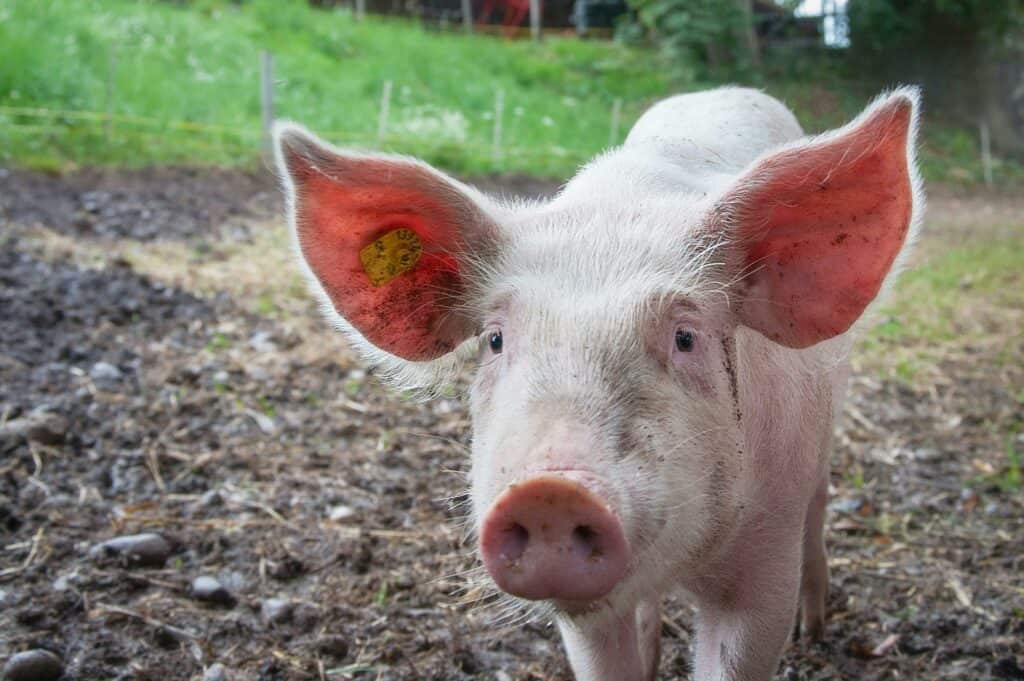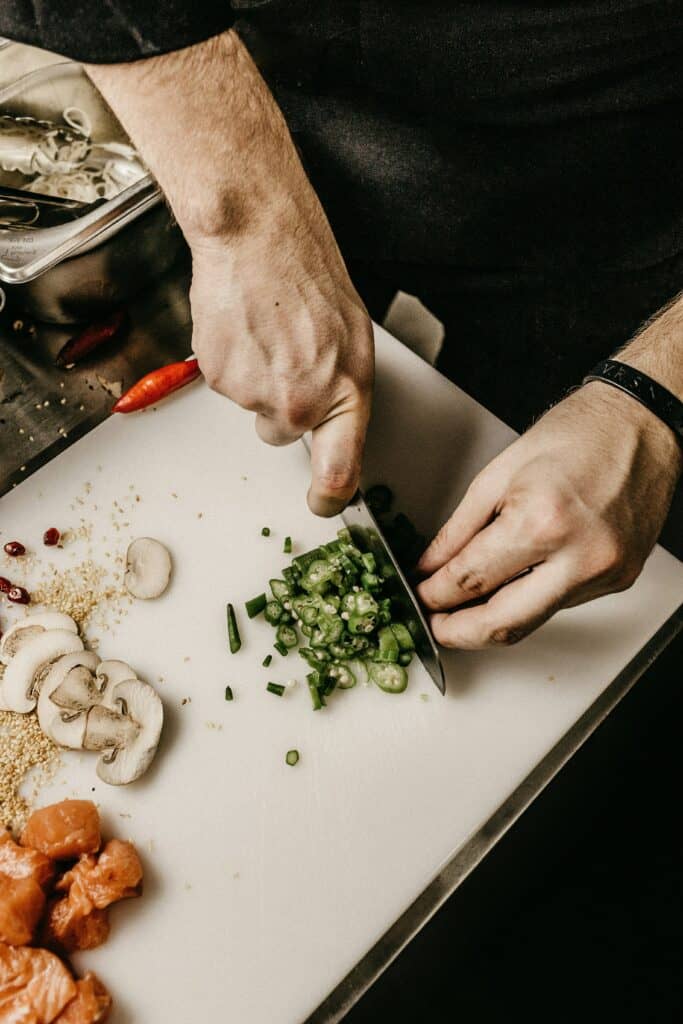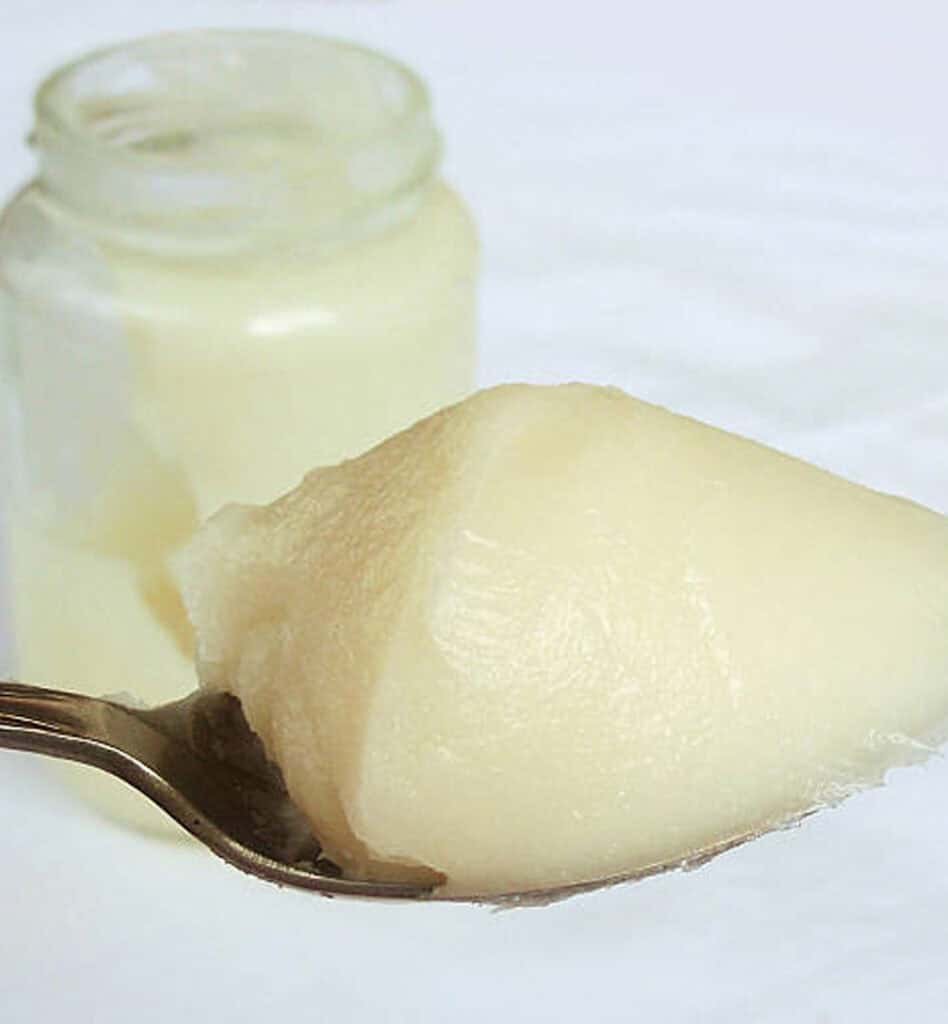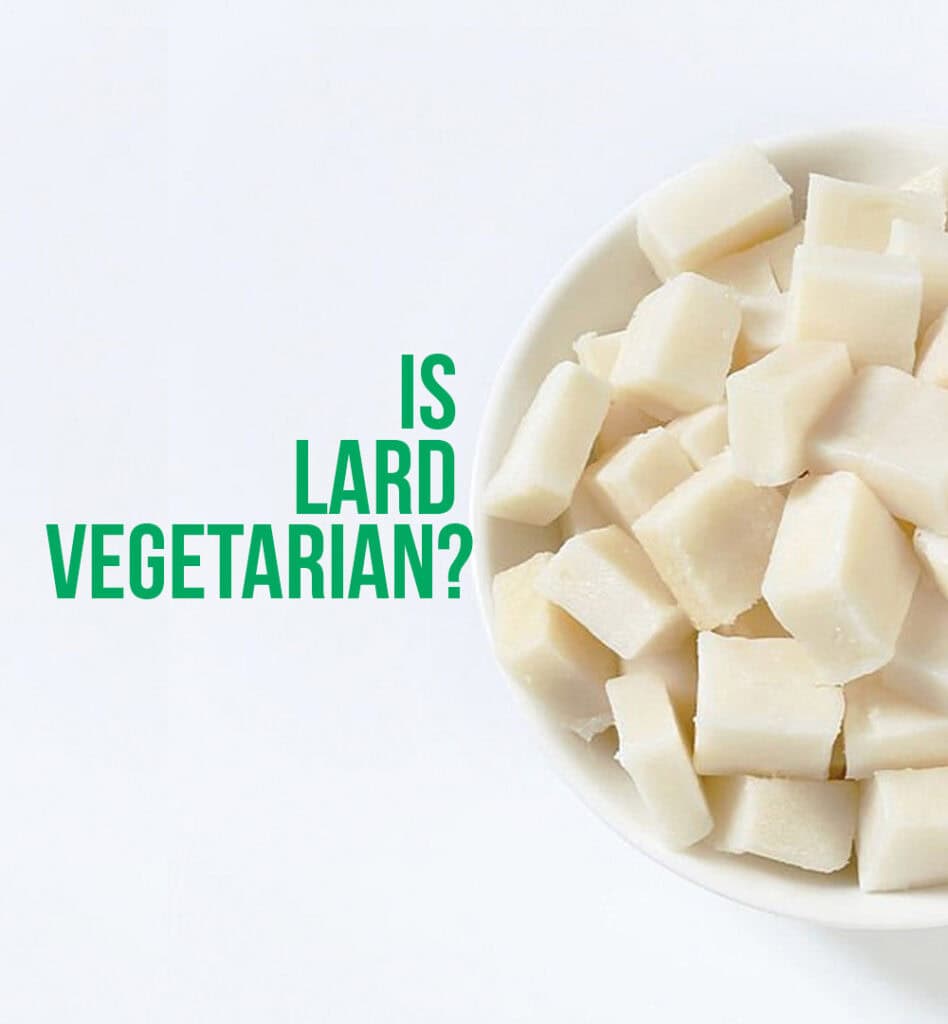Table of Contents
Is Lard Vegetarian?
Have you ever found yourself wondering about the ingredients in your food, particularly whether lard is vegetarian? This question is more common than you might think, especially with the growing interest in vegetarian and vegan lifestyles. Knowing what’s in our food and making informed dietary choices is crucial for many reasons, including health, ethics, and environmental impact. So, let’s dive into the world of lard and see where it fits in the vegetarian spectrum.
What is Lard?
Definition of Lard
Lard is a type of fat that comes from the fatty tissue of pigs. It has been used for centuries as a cooking fat and baking ingredient due to its rich flavor and high smoke point.
Historical Use of Lard
Historically, lard was a staple in many households, especially before the advent of vegetable oils. It was commonly used in baking to produce flaky pastries and in frying for its ability to withstand high temperatures.

How is Lard Made?
The Rendering Process
The process of making lard is known as rendering. This involves melting down the fat from pigs to separate the pure fat from the connective tissues and impurities.
Wet Rendering
Wet rendering involves boiling the fat in water and then allowing it to cool so that the pure fat can be skimmed off the top.
Dry Rendering
Dry rendering, on the other hand, involves slowly heating the fat in a dry pan until it melts and the impurities can be strained out.
Is Lard Vegetarian?
Understanding Vegetarianism
Vegetarianism is a dietary choice that excludes meat and sometimes other animal products. The definition can vary, but generally, it includes avoiding foods that involve the killing of animals.
Types of Vegetarian Diets
There are several types of vegetarian diets, including lacto-vegetarian (includes dairy), ovo-vegetarian (includes eggs), and vegan (excludes all animal products).
Lard and Animal Products
Since lard is derived from pigs, it is not considered vegetarian. It involves the use of animal fat, which is contrary to vegetarian principles that avoid products resulting from animal slaughter.

Is Lard Vegan?
Definition of Veganism
Veganism is a lifestyle and dietary choice that avoids all animal-derived ingredients and products. This includes meat, dairy, eggs, and other animal-based products like lard. Those who follow a vegan diet do so for various reasons, including ethical considerations regarding animal welfare, health benefits like reduced risk of high cholesterol, and environmental concerns. This dietary restriction necessitates the exclusion of any food products originating from animals, including common ingredients such as pork fat.
Why Lard is Not Vegan
Lard is made from pig fat, specifically from the connective tissue and fat deposits of the animal. This pork lard is rendered to create a solid fat that is used in various culinary applications. Due to its animal origin, lard is not considered vegan and does not fit into a vegan diet or lifestyle, which aims to exclude all forms of animal exploitation and cruelty.
The production of lard involves the pork industry, which raises ethical concerns for vegans. Moreover, lard’s inclusion in numerous food products means that vegans need to carefully read ingredient lists to avoid it.

Vegetarian Alternatives to Lard
For those living a vegan lifestyle, different types of vegetable oils, and commercial substitutes can be used in place of lard. Vegetarian options are also a great option for those following halal diets since they do not contain pork. Of course, it’s always important to double check any label to be sure that no animal-based product has been used.
Plant-Based Fats
Vegetarians and vegans have numerous plant-based alternatives to lard that offer similar functionality in recipes. These alternatives include various types of vegetable oils, such as olive oil, coconut oil, soybean oil, and cottonseed oil. Each of these oils provides a unique flavor and can be used as a solid fat at room temperature, making them suitable for both sweet and savory applications like pie crusts and refried beans.
Olive Oil
Olive oil is a great substitute for lard in many recipes. It is rich in monounsaturated fats, which are considered healthier options compared to the saturated fats found in animal sources like pork lard and beef tallow. Olive oil’s mild flavor and versatility make it ideal for high-heat cooking, salad dressings, and even baking. Home cooks appreciate its ability to create a flaky texture in pastry crusts while contributing to a plant-based diet.
Coconut Oil
One of the more common vegan alternatives for lard is Coconut oil. Its high smoke point and ability to remain solid at room temperature make it perfect for various culinary uses, from frying french fries to creating the perfect pie crusts. This cooking oil imparts a slight coconut flavor, adding a unique taste to dishes. It also has large fat crystals, which help achieve the flaky texture desired in many baked goods.
Commercial Vegetarian Lard Substitutes
For those looking for a convenient vegan option, there are commercially produced vegetarian lard substitutes available at the grocery store. These products, such as Crisco vegetable shortening, are made from hydrogenated vegetable oils and mimic the properties of traditional lard. They are great substitutes for lard in recipes requiring solid fats, like pastry crusts and savory applications. It’s a good idea to double check the ingredient list to make sure there is no use of animal products.
In my opinion, this is the best substitute if you are just going for flavour and texture alone. Of course any alternative to lard will need a high fat content to provide a similar texture and flavour.
Incorporating Vegetarian Alternatives in Cooking
Vegetarians can also consider using other plant-based foods and fats like palm oil, unsalted butter (for non-vegan vegetarians), and mashed avocado as lard replacements. Each alternative offers different benefits and can be chosen based on the specific needs of a recipe. For example, palm oil is suitable for high-heat cooking, while avocado is excellent for adding creaminess to dishes.
In summary, while lard is not suitable for a vegan or vegetarian diet due to its animal origin, there are numerous plant-based alternatives that can be used in its place. These options provide similar culinary benefits without compromising on ethical, health, or dietary principles. The good news is that with a variety of substitutes available, home cooks can continue to enjoy their favorite recipes, whether they are making pie crusts, refried beans, or savory pastries, all while adhering to a plant-based lifestyle. For more detailed suggestions and recipes, you can explore affiliate links to various plant-based cooking resources.
Lard in Mexican Food
Lard, has been a staple in Mexican cuisine for generations, serving as a common ingredient in a wide array of traditional dishes. Leaf lard, which is prized for its mild flavor and smooth texture, is often used in high heat cooking and contributes to the rich, authentic taste of many beloved Mexican foods. You’ll frequently find lard in items like refried beans, tamales, and various pastries, where it helps achieve the desired flaky texture and depth of flavor.
In some Mexican restaurants and homes, a cup of lard might be added to recipes to enhance both savory and sweet dishes, making it a versatile cooking fat. However, as concerns about animal welfare and health impacts from animal-based fats grow, lard’s use has garnered a bad reputation among some consumers.
For those looking to avoid animal products, finding a suitable vegan substitute can be challenging. Options like coconut oil, vegetable shortening, and other plant-based fats are now included on many vegan food lists as alternatives to lard. If you’re shopping at a local butcher, you’ll likely find lard readily available, often marketed for its suitability for human consumption and its performance in high heat cooking.
Yet, as the demand for vegan and vegetarian options increases, many Mexican restaurants are starting to offer dishes prepared with these plant-based alternatives. With a bit of good luck and experimentation, home cooks can replicate the traditional flavors of Mexican cuisine without the use of lard, ensuring that everyone, regardless of dietary preference, can enjoy these delicious dishes.

Health Implications of Lard vs. Substitutes
Cardiovascular Health
Lard contains saturated fats, which can impact cardiovascular health. Plant-based fats, particularly those high in unsaturated fats like olive oil, are generally considered healthier for heart health.
Weight Management
Plant-based oils like olive oil and coconut oil often contain beneficial fatty acids and fat-soluble vitamins that can support the immune system and overall health. Additionally, they may have fewer trans fats compared to hydrogenated lard.
Additional Health Benefits
Plant-based oils like olive oil and coconut oil often contain beneficial fatty acids and fat-soluble vitamins that can support the immune system and overall health. Additionally, they may have fewer trans fats compared to hydrogenated lard.

